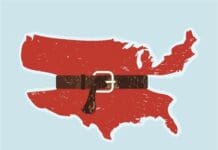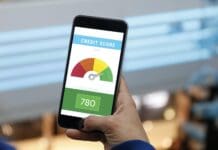Retail sales declined more than expected in December, according to the Census Bureau. Sales fell by 1.9%, more than the 0.1% drop that economists initially expected. While retail sales in December did drop more than forecast, sales for the whole of 2021 were still up from 2020’s sales by about 19.3%.
This drop in sales was expected, though not to this high degree. Analysts assumed that retail sales would drop in December as many Americans decided to start shopping for the holiday season earlier than normal. Global supply chain issues left many consumers and businesses worried that they would not have a large amount of inventory in stores for customers to buy. As a result, many consumers began their gift and present shopping much earlier in the year, around October and November. November saw a 0.2% rise in retail sales.
The Omicron variant of the coronavirus could have also slightly dampened retail sales. The Omicron variant was discovered towards the end of November. As the variant is very contagious, it began to cause some issues for businesses by the end of December. For example, the airline industry had multiple issues to deal with once their employees began to be infected with the variant. This led to many delays and cancellations around the Christmas and New Year holidays.
Therefore, it is possible that retail sales dropped because of the quick surge of infections around the country. More than likely, the fact that many consumers started shopping for the holidays earlier than expected resulted in this drop, for the most part.
Even with this unexpected drop, economists are still optimistic about the economy and the future. The Omicron variant does pose some issues that analysts are looking into, mainly because the variant is so contagious and can hinder how businesses are able to do work. If employees become sick or must quarantine, this can hurt employers who are already in a tight position because of the labor shortage.
Consumer price inflation also rose by 7% in December as higher prices and product shortages made it rise. This also likely impacted how much consumers were willing to spend at the end of the year. Because businesses had lower inventories than normal, some businesses did not have grand sales at the end of the year and instead pushed smaller sales. This also could have impacted how much money consumers spent. If they felt something wasn’t a good deal, they could have decided not to splurge on high ticket items.
According to this new data from the Census Bureau, sales for furniture, electronics, clothes, and sporting goods fell in December. Meanwhile, online sales continued to surge, signaling that many consumers may continue to prefer shopping online, rather than shopping in stores.
Even with this fall, analysts are positive that the economy will continue to grow. If the Omicron variant continues to surge, this may cause problems. However, economists are optimistic that businesses and consumers will handle these issues better than they handled at the beginning of the pandemic in 2020.












